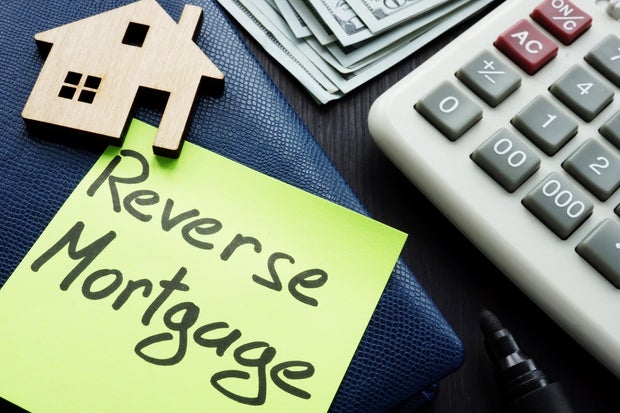Getty Images/iStockphoto
There are many reasons why you might need some extra cash in retirement. Perhaps you weren’t able to save as much as you hoped or you thought you saved enough but an unexpected expense threw you for a loop. Whatever the reason, there are several potential options available in order to access much-needed money, particularly if you’re a senior.
If you’re a homeowner over the age of 62, you could take out a home equity loan or home equity line of credit (HELOC). There’s also a third option: a reverse mortgage, which offers unique perks the other options don’t.
Compare your reverse mortgage options online now.
Reverse mortgage benefits seniors should know
If you’re thinking of getting a reverse mortgage, consider these benefits.
You get to stay in your home
Downsizing is one way to reduce your budget in retirement, but you may not wish to do so. If you’d prefer to age in place or leave the family home to your children, a reverse mortgage can allow you to afford it. You can even use the funds to make your home more accessible.
If you think you could benefit from a reverse mortgage, see what you could qualify for here.
You won’t pay taxes on the funds
While you can use reverse mortgage funds as supplemental income, the IRS doesn’t consider them income for tax purposes. You won’t owe taxes on them, and since they’re not counted as income, they won’t interfere with your Social Security or Medicaid benefits. This can help maximize your income and reduce your costs in retirement.
You’ll no longer have mortgage payments
When your lender disburses your reverse mortgage proceeds, they first deduct any balance you still owe on your mortgage. While this means you won’t receive as much cash, it also means you won’t have to make mortgage payments — at least for the time being. Eliminating this monthly payment can go a long way toward relieving some pressure on your monthly budget.
The lender will eventually require payment — after you sell the house, move or die. In these cases, you or your heirs must repay the loan, either using proceeds from selling the home or out of pocket (such as with estate funds). Note that you also must continue paying home insurance and property taxes as long as you live in the home. If you don’t, your home could be foreclosed.
“Reverse mortgage loans typically must be repaid either when you move out of the home or when you die. However, the loan may need to be paid back sooner if the home is no longer your principal residence, you fail to pay your property taxes or homeowners insurance, or do not keep the home in good repair,” the Consumer Financial Protection Bureau explains online.
Bear in mind you’ll accrue interest every month from the time the loan is disbursed until you (or your heirs) pay it off. This means your balance will increase and your home equity will decrease. Take this into account when deciding if a reverse mortgage is right for you.
There are no restrictions on how you use the funds
How you use your loan proceeds is entirely up to you. For example, homeowners have used reverse mortgages to:
- Supplement Social Security benefits
- Pay off debt
- Cover medical expenses
- Pay for long-term care
- Make their home more accessible
- Fund a trip
Note that if you use the proceeds for IRS-approved improvements to your home, you may be able to deduct the interest if you sell the home.
You can receive funds in multiple ways
Unlike other home equity options, reverse mortgages offer a few ways to receive your funds: a lump sum, a line of credit or monthly payments. Which option is best for you depends on what you want to use the money for.
For example, if you want to fund a one-time expense, such as a debt payoff, a lump sum might be best. A line of credit is good for ongoing costs, such as medical expenses, while a monthly payment is ideal for supplementing your income. The flexibility to choose your payout method helps you get the most out of your reverse mortgage.
The bottom line
As with any financial product, there are pros and cons to reverse mortgages. Be sure you understand them all to determine if a reverse mortgage is right for you. If you need additional guidance, a mortgage specialist can help.
Stay connected with us on social media platform for instant update click here to join our Twitter, & Facebook
We are now on Telegram. Click here to join our channel (@TechiUpdate) and stay updated with the latest Technology headlines.
For all the latest Education News Click Here

